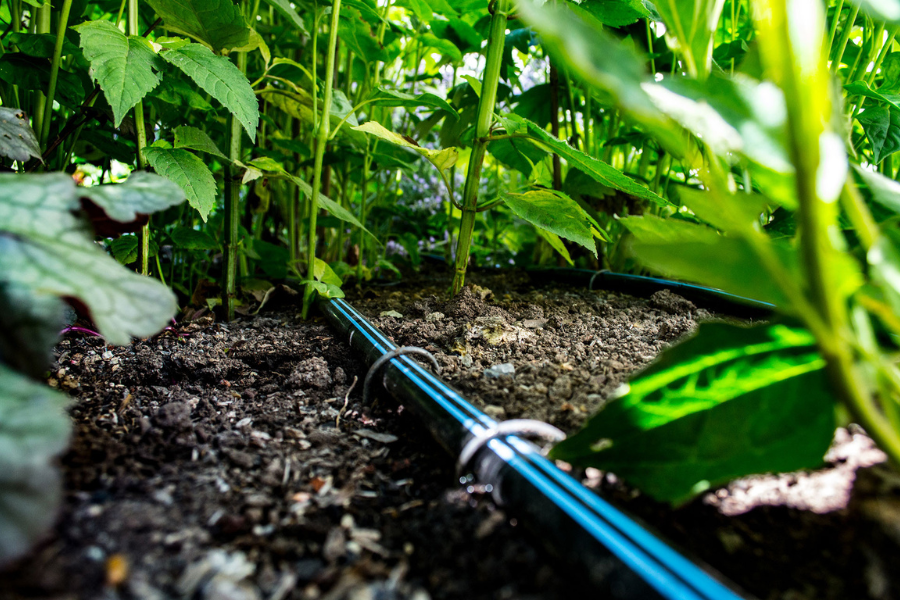Posted On: October 21, 2024
Posted By: KSNM DRIP

Modern agriculture has moved a step ahead with the introduction of drip irrigation systems, which improve yield and soil health. Along with increasing the quality of the crops, this irrigation system increases enzyme activity in soil promoting good microbial life. Are you still having doubts, this blog can help you with the impacts that drip irrigation can create on the soil. Hope you will find your answer here.
Yes, drip irrigation systems can improve soil health. Since water is delivered directly to the root slowly and evenly, it reduces soil erosion and runoff. This method also helps avoid waterlogging and salt buildup, which can harm the soil. With drip irrigation, water is used more efficiently, keeping the soil moist and supporting the growth of good microbes. These microbes break down organic matter and improve soil fertility. Drip irrigation can also prevent nutrient loss, making your soil healthier and better for your plants.
Drip irrigation positively impacts soil health by improving water efficiency and maintaining soil structure. Improving soil fertility and the good microbial presence made soil to be healthier and have a high nutrient content in it. Here are some of the impacts created by drip irrigation on soil health,
Enzymes in soil help in decomposing and releasing nutrients that are used by plants for their growth. It also helps in maintaining a consistent moisture level in the soil. Along with drip irrigation providing a constant supply of water, it helps the enzymes to work more efficiently, which gives a good balanced nutrient cycle to the soil.
Plants need nutrients from the soil to grow and water is the way to get the nutrients to the plant's roots. By drip irrigation, water is directly sent to plants' roots minimizing nutrition loss and helping plants to have better growth. Managing nutrients efficiently with a drip irrigation system also reduces weed growth in your farmland.
Microbial soil life is very important in decomposing organic matter and improving soil fertility for crops to flourish. The steady water supply from drip irrigation systems helps maintain microbial activity which in turn makes the soil healthy and nutrition rich.
This modern irrigation method has significantly improved soil health and improved the harvest of crops. This is all thanks to drip irrigation systems and their water conservation feature that made the agriculture process more productive. Here are the benefits you get by improving soil health using a drip irrigation system.
There is a 50% decrease in overall water usage when compared to the traditional flood irrigation method while improving soil quality.
Overwatering and underwatering are issues that cause reduced soil aeration and with drip irrigation, you can provide consistent moisture and promote a healthier root system.
You can easily apply fertilizers directly to your plant�s root zone which improves the uptake efficiency while minimizing leaching and runoff.
Soil erosion never happens when using a drip irrigation system which helps in maintaining soil texture and fertility over time.
By providing targeted water application, the is a reduction in weeds and other competition for nutrients that are meant for your crops.
There is no risk of your plants getting affected by fungal diseases, leading to healthier crops that do not rely on pesticides.
Drip irrigation offers significant benefits for soil health by ensuring efficient water use, preventing erosion, and promoting better nutrient management. By supporting microbial activity and maintaining soil structure, this method helps create a more fertile and balanced environment for crops to thrive. As a result, farmers not only conserve resources but also improve crop yield and quality, making drip irrigation an essential tool for sustainable agriculture.